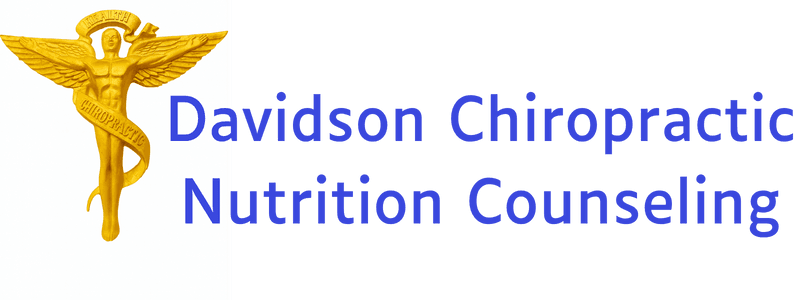Autoimmune Diseases
Empower Your Body: Nourish to Heal – Discover Natural Relief for Autoimmune Challenges with Dr. Eric Davidson
Understanding the Silent Struggle of Autoimmune Diseases
Living with an autoimmune disease can feel like your own body has turned against you. One day, you're managing daily life; the next, fatigue crashes over you like a wave, joints ache with unrelenting pain, or mysterious flares disrupt your routine. If you're in Appleton, Wisconsin, or the surrounding Fox Valley area, you're not alone. Over 50 million Americans grapple with autoimmune conditions, and right here in our community, countless individuals seek answers beyond medications that often come with side effects. These diseases—ranging from rheumatoid arthritis and lupus to Hashimoto's thyroiditis and multiple sclerosis—aren't just medical diagnoses; they're thieves of energy, joy, and independence.
But here's the empowering truth: while there's no cure, you have more control than you might think. Your diet and nutrition play a pivotal role in modulating inflammation, supporting gut health, and potentially easing symptoms. As a chiropractor with a deep commitment to holistic wellness, Dr. Eric Davidson specializes in diet and nutrition counseling tailored to autoimmune warriors like you. At his Appleton practice located at 2110 S Memorial Dr, Dr. Davidson combines chiropractic expertise with personalized nutritional strategies to help you reclaim your vitality—naturally and sustainably.
In this guide, we'll explore autoimmune diseases in depth, uncover how nutrition can be your greatest ally, and show why partnering with Dr. Davidson could be the turning point you've been waiting for. Our goal? To motivate you to take that first step toward a nourished, resilient body. Let's dive in.
What Are Autoimmune Diseases?
Autoimmune diseases occur when the immune system, your body's natural defense force, mistakenly identifies healthy cells as invaders and launches an attack. This "friendly fire" leads to chronic inflammation, tissue damage, and a cascade of symptoms that can affect nearly every organ system. There are over 80 known types, affecting 1 in 10 people worldwide, with women disproportionately impacted—up to 78% of cases.
The exact causes remain elusive, but experts agree on a perfect storm of factors: genetics provide the predisposition, while environmental triggers like infections, stress, toxins, and yes—diet—pull the switch. For instance, a leaky gut (increased intestinal permeability) allows undigested food particles and bacteria to enter the bloodstream, confusing the immune system and sparking widespread inflammation. In developed nations like ours, the rise in autoimmune cases correlates with the shift to Western diets high in processed foods, sugars, and unhealthy fats—a pattern that's alarmingly common in Appleton's fast-paced lifestyle.
Common culprits include:
Rheumatoid Arthritis (RA): Attacks joints, causing swelling, stiffness, and deformity.
Lupus (SLE): A systemic assault on skin, joints, kidneys, and more, often triggered by sunlight or stress.
Hashimoto's Thyroiditis: Targets the thyroid, leading to hypothyroidism, weight gain, and brain fog.
Multiple Sclerosis (MS): Damages nerve coverings, resulting in mobility issues and vision problems.
Inflammatory Bowel Disease (IBD): Includes Crohn's and ulcerative colitis, ravaging the gut with pain, diarrhea, and malnutrition.
Type 1 Diabetes: Destroys insulin-producing cells in the pancreas.
Psoriasis: Skin plaques from rapid cell turnover, linked to joint involvement in psoriatic arthritis.
These aren't rare anomalies; they cluster in families and communities. If a loved one in Appleton has been diagnosed, your risk may be elevated. Early intervention through lifestyle changes can make all the difference.
The Hidden Toll: Symptoms and Daily Impact
Imagine waking up each morning not knowing if today will be a "good day" or one where pain dictates your every move. Autoimmune symptoms are as varied as the diseases themselves, but they share a core: unrelenting inflammation manifesting as redness, swelling, heat, and pain. Fatigue isn't just tiredness—it's bone-deep exhaustion that no amount of sleep cures. Flares can strike without warning, turning a simple grocery run in Appleton's bustling markets into an insurmountable task.
Let's break it down:
Joint and Muscle Pain: In RA or lupus, mornings bring stiffness lasting hours, making buttoning a shirt or gripping a coffee mug a battle.
Digestive Distress: IBD sufferers endure abdominal cramps, bloating, and urgent bathroom trips, often leading to dehydration and nutrient deficiencies.
Skin and Hair Issues: Psoriasis causes itchy, scaly patches; alopecia areata triggers sudden hair loss, eroding self-confidence.
Neurological Fog: MS or Hashimoto's can cloud thinking, impair balance, or cause numbness, affecting work and family life.
Systemic Effects: Fever, weight fluctuations, and organ involvement (like kidney strain in lupus) heighten risks for heart disease and infections.
The emotional burden is equally heavy—depression, anxiety, and isolation compound the physical strain. In a community like Appleton, where outdoor activities and family gatherings thrive, these limitations sting deeply. Yet, symptoms often cycle: periods of remission tease hope, only for flares to shatter it. This unpredictability underscores the need for proactive management, where diet emerges as a modifiable lever for relief.
The Gut-Immune Connection: Why Diet Matters in Autoimmunity
At the heart of autoimmunity lies the gut—home to 70% of your immune cells. A "Western diet" rich in processed sugars, trans fats, and salt disrupts the gut microbiome, fostering dysbiosis (imbalanced bacteria) and leaky gut. This breach lets toxins leak into the bloodstream, provoking immune overreactions that fuel autoimmune flares.
Conversely, nutrient-dense foods act as peacekeepers. Anti-inflammatory diets rich in omega-3s, antioxidants, and fiber heal the gut lining, modulate T-cells (key immune regulators), and reduce pro-inflammatory cytokines. Studies show that shifting from fast-food reliance to whole foods can lower disease activity in lupus by up to 50% with consistent adherence. In MS, low-fat plant-based eating has slashed medication needs for some patients.
Nutrition isn't a cure-all, but it's a cornerstone. It addresses root causes like oxidative stress and hormonal imbalances, often overlooked in traditional treatments. For Appleton residents juggling work at companies like Kimberly-Clark or family duties, simple swaps—like choosing local berries over sodas—yield profound results.
Nutrition Strategies: Fueling Your Path to Remission
Ready to harness food as medicine? Evidence-backed approaches emphasize whole, anti-inflammatory eating. Dr. Davidson's counseling draws from these, customizing plans to your needs.
Adopt an Anti-Inflammatory Mediterranean Diet: Load up on fatty fish (salmon for omega-3s), olive oil, nuts, and colorful veggies. A study in rheumatoid arthritis patients found symptom reduction comparable to meds after three months. Skip the breadbasket; opt for quinoa to stabilize blood sugar.
Embrace the Autoimmune Protocol (AIP): This elimination diet removes grains, dairy, nightshades, and eggs for 30-90 days, then reintroduces to identify triggers. It's shown promise in easing IBD flares and Hashimoto's symptoms by promoting gut repair. Dr. Davidson guides you through phases, ensuring nutrient balance.Prioritize Plant-Based Power: Whole-food, plant-based eating slashes inflammation via fiber and polyphenols. For lupus, it correlates with lower disease activity scores. Think apple orchards from local farms—seasonal produce like kale and sweet potatoes for antioxidants.Key Nutrients to Spotlight:
Omega-3 Fatty Acids: From flaxseeds or walnuts; combats joint pain in RA.
Vitamin D: Sun exposure plus fortified foods; deficiency links to MS progression.
Probiotics and Ferments: Yogurt alternatives or sauerkraut to rebuild gut flora.Turmeric and Ginger: Curcumin's anti-inflammatory punch rivals NSAIDs for IBD.
Practical Tips for Appleton Living: Shop at farmers' markets for fresh, local anti-inflammatories. Batch-cook soups with bone broth alternatives for easy meals. Track flares with a food journal—Dr. Davidson provides templates.
Fasting mimics, like intermittent windows, show symptom relief in some, but consult first. Remember, consistency trumps perfection; small changes compound.
Meet Dr. Eric Davidson: Your Appleton Ally in Autoimmune Wellness
Dr. Eric E. Davidson, DC, isn't just a chiropractor—he's a dedicated healer who's empowered hundreds in Appleton since establishing his practice. With credentials in chiropractic care and a passion for integrative nutrition, he views the body as an interconnected system. "Autoimmunity thrives in imbalance," Dr. Davidson says. "Through diet, we restore harmony."
At 2110 S Memorial Dr, his office offers a welcoming space for one-on-one counseling. Sessions include:
Comprehensive assessments: Gut health tests, inflammation markers, and dietary audits.
Personalized plans: AIP adaptations, meal prep guides, and supplement recommendations (always evidence-based).
Holistic integration: Pair nutrition with gentle chiropractic adjustments to ease pain and improve mobility.
Patients rave: "Dr. Davidson's guidance turned my RA flares from weekly to rare— all through food!" His approach is ethical, transparent, and rooted in science—no hype, just results.
Resources and Final Thoughts
Books: "The Autoimmune Solution" by Amy Myers, MD.
Apps: MyFitnessPal for tracking; Insight Timer for stress-relief meditations.
Local: Join Appleton's autoimmune support groups via Fox Valley Meetup.
Remember, partnering with a professional like Dr. Davidson ensures safe, tailored progress. Your body wants to heal—give it the tools.
Take Action: Your Journey Starts Today
Don't let autoimmunity define you. Schedule your free 15-minute consult at (920) 257-4011. In Appleton, healing is local, accessible, and transformative. You're stronger than your symptoms. Nourish wisely, live fully.






